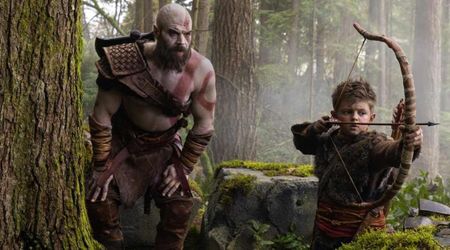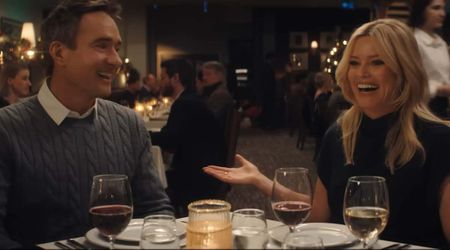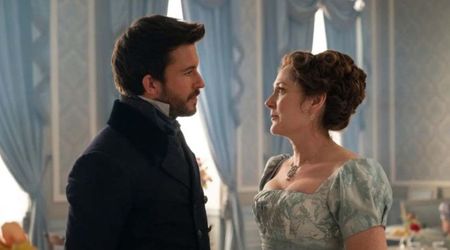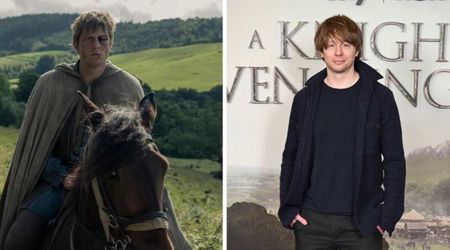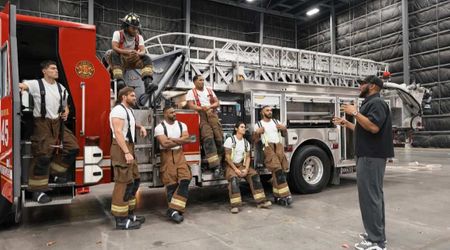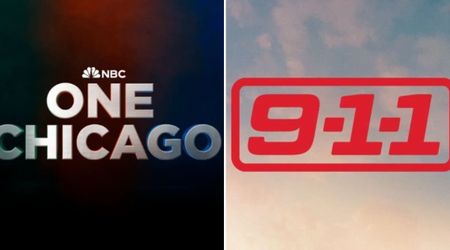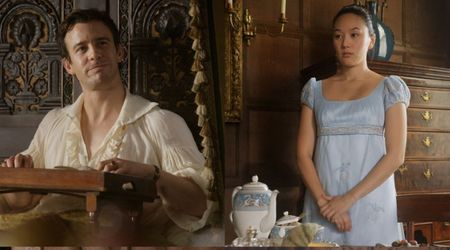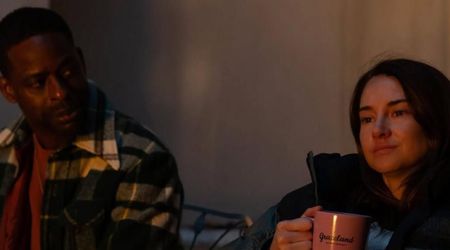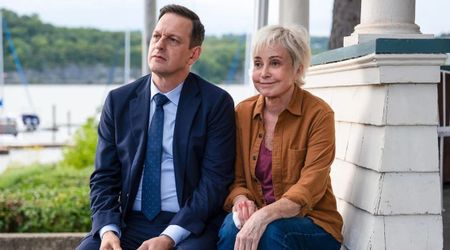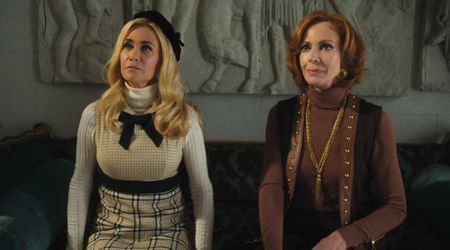'Blood & Treasure' composer Kyle Newmaster reveals why the CBS show was a 'dream gig' for him

Kyle Newmaster has been a film, television, game, and concert stage composer for over fifteen years. His latest project, CBS' 'Blood & Treasure', is a television series sees an antiquities expert team up with an art thief to catch a terrorist who uses stolen treasures to fund his attacks. With elements ranging from action-adventure to drama to romance all with a tinge of class and comedy, the show certainly poses a challenge for anyone scoring it, one that Newmaster accomplished with ease.
Not only did the composer manage to create a score that captured the show's essence brilliantly, but he was also able to record live musicians throughout the season, a rarity with TV composing nowadays. Newmaster had a full union orchestra for episodes one and two, as well as 22 strings and additional brass players on the final two episodes. Other live players were used throughout the rest of the season. The musicians are almost like the hidden treasures of the series, escalating the music and show to another level.
MEA WorldWide (MEAWW) got to speak with Newmaster about his work on 'Blood & Treasure', the difficulty of trying to create during a pandemic, and what he has planned next.
The social distancing directives of the coronavirus pandemic have given composers their fair share of recording challenges, yet you managed to record live musicians, even a full orchestra, for 'Blood & Treasure'. How did you manage to pull that off?
Luckily for 'Blood & Treasure', season one began in 2019, and we finished all of our recordings long before the lockdown. Even prior to Covid-19 though, pulling off live orchestral sessions on a weekly TV schedule was quite the challenge. However, due to the quarantine, a very large number of musicians have learned the skill of remote recording from a home studio. It’s something that’s been going on for years, but in the past, only a small percentage of the musician pool was set up for that type of recording. Recording individually and layering will never replace the magic of having full ensembles of musicians in the same room, but it’s a workaround. With the rigors of TV schedules, often things happen very fast and so it’s very convenient to be able to send out a pdf sheet music part and a recording and get back a great performance quickly through remote recording.
How did you first come to work with 'Blood & Treasure' creators Matthew Federman and Stephen Scaia and how did you first go about formulating and ideating that classic sound for the show?
I first met Stephen Scaia back in 2014. He had a Kickstarter campaign for a short film project he was creating in-between his various TV producing and writing jobs. I saw the Kickstarter video and thought it looked amazing and so I sent in a demo to the contact e-mail. You never know with sending unsolicited demos, but I was thrilled when Stephen e-mailed me back and asked me to score that project. It turned out we had very similar tastes in film music and films in general which was very cool. We became good friends, and through Stephen, I met Matthew Federman as well. They are both very talented, inspiring, and just all-around great guys.
When 'Blood & Treasure' was announced in 2017 I knew it was going to be amazing and I discussed with Stephen the best way to demo for the job and the type of music he was looking for. He described the music style as 'Indiana Jones' meets 'James Bond' meets 'Romancing the Stone' with a heavy classic orchestral sound. He was especially fond of John Barry, John Williams and Alan Silvestri, all of which are favorites of mine. From there, I read some early scripts and began writing possible thematic ideas and concepts based on the scripts. Stephen and Matthew sent me feedback on some of those concepts and helped point me in the right direction.
When it was time for CBS to choose a composer, Stephen suggested I create a soundtrack suite out of my thematic ideas to present to the other producers and the network. I created a suite based on four of the main themes and arranged them to play as one seven-minute cue. All of those were eventually used in the show. I recorded a live brass ensemble for the demo and some other solo elements to give it that cinematic sound. Working on the themes, and the overall sound for months, really helped me to develop the concept even prior to them filming the episodes.
You've composed music for everything from whimsical comedies to thrilling dramas, do you have a favorite genre or preferred moodscape to work your magic with?
I do love working in different genres. I’m inspired by all kinds of films and it’s really the story and the film itself that get the ideas flowing and inspires me to write. But, although I love writing for a variety of styles, a big part of me becoming a composer stemmed from my love of genre films in general and being a kid in the ‘80s. The action-adventure, sci-fi, and horror films from my childhood and the soundtracks to those films, are really what got me excited about writing music to picture. Films like 'Raiders of the Lost Ark', 'ET', 'Poltergeist', 'Star Wars', 'James Bond' and so many more really excited my imagination. 'Blood & Treasure' is right up that alley. It’s honestly a dream gig to write the classic orchestral sound for a modern-day action-adventure score.
Speaking of the '80s, you composed and recorded over an hour of music with the London Symphony Orchestra for the video game 'Kinect: Star Wars'. What was that experience like?
I was a big-time 'Star Wars' geek as a kid and pretty much still am. I lived and breathed the 'Star Wars' films for many years and like so many ‘80s kids the 'Star Wars' soundtracks were basically the soundtrack to my childhood. That sound is imprinted in my mind and so writing for 'Kinect: Star Wars' and recording at Abbey Road with the London Symphony was a really amazing experience and although there was a lot of pressure, it was a dream come true. I co-scored that game with my good friend Gordy Haab who has made a full career out of scoring 'Star Wars' games.
Prior to that opportunity, I had recorded two full orchestra scores for epic 'Star Wars' fan films to strengthen my demo in the 'Star Wars' vibe: 'Forced Alliance', which won an Audience Choice Award at Comic Con in 2006, and then 'Ryan Vs. Dorkman 2' in 2007 which was a viral online hit. Prior to 'Kinect: Star Wars', I also worked as an additional composer and orchestrator on “the old republic” game from Lucas Arts. Basically, I had already worked out the kinks and worked through the nerves by the time 'Kinect: Star Wars' happened.
The biggest challenge on that scoring job was that Gordy and I had six weeks to write and orchestrate about two hours of action-style music. It was a really crazy schedule. Nobody can write a 'Star Wars' score - or any score really - like John Williams, but it’s fun to try.
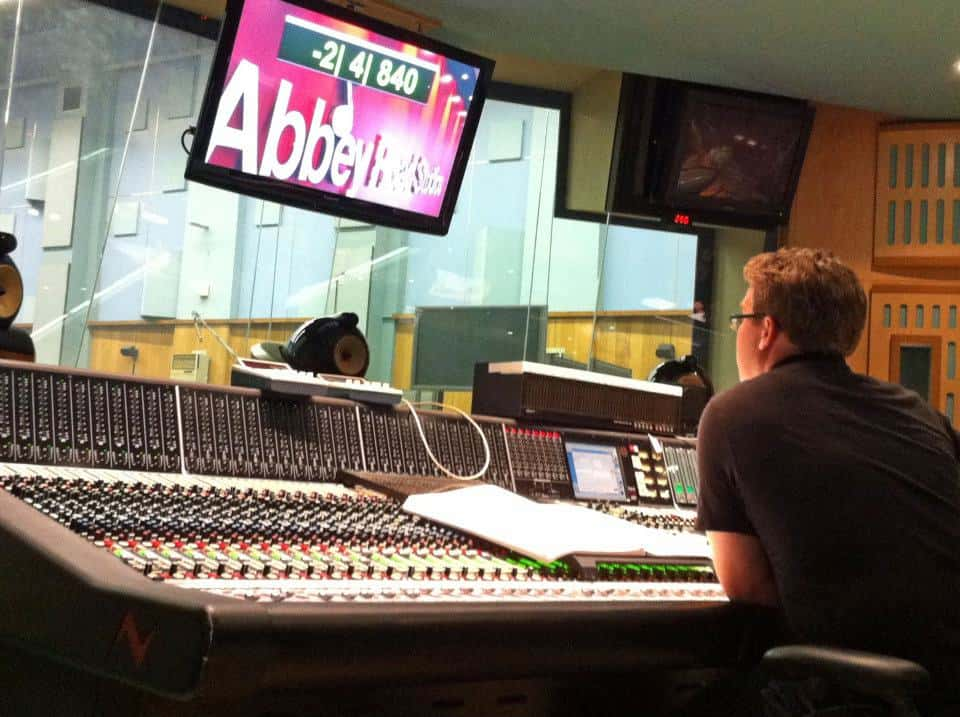
What musical pieces are you submitting to the Emmys for award consideration? What made these pieces special to you?
For Emmy Award consideration I submitted 'Blood & Treasure'. The series premiere is nearly 90 minutes, with 63 minutes of score and the majority of it recorded with the live orchestra that I discussed above. Musically it helps establish almost all of the main themes and motives for the remainder of the season. I think my favorite moments musically in this episode would be the entire five-minute sequence at around 23:20 in the underground, black market Antiquities auction, where a variety of the main characters' themes were developed or the flashback to 1942 at about the 44-minute mark where we discover how Cleopatra’s sarcophagus was stolen. That moment especially called for some classic John Williams-style action and adventure writing. Both were really fun scenes to score.

